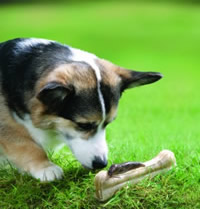It's Raining Slugs & Snails!
Don't let your pets fall ill due to garden pests
With appalling weather &
ridiculous amounts of rain, it also seems to be raining slugs & snails! They are absolutely everywhere
& are posing a potentially fatal health risk to local dogs.
Soggy
weather conditions have again provided an ideal environment for a huge increase
in the UK’s populations of slugs and snails, and this could pose a serious risk
to dogs that accidentally or habitually eat these slippery pests.
Drove
Veterinary Hospital veterinary surgeon, Lynne Gaskarth, warns owners to be on
the look out for signs that their dog has, or may be prone to picking up a
lungworm infection.
Lungworm
infection in dogs is spreading across the UK and leads to a disease called
Angiostrongylosis. It has a wide range of symptoms which can make it difficult
to diagnose.
However, with the increasing appearance of the parasite causing
this disease, vets are on the look out for the condition before it progresses
to a stage where it becomes fatal.
The
lungworm parasite spends part of its lifecycle in slugs, snails or even frogs.
The danger to dogs arises when small slugs or snails are either purposefully or
accidentally eaten while rummaging through undergrowth, eating grass, or taken
up when drinking from puddles or an outdoor water bowl.
“The
symptoms of the condition are many and varied” explains Lynne Gaskarth
“You
might notice coughing, reluctance to exercise, depression,
weight loss, fits, vomiting, diarrhoea, weakness and paralysis, or persistent
bleeding from minor cuts. However, a small proportion of dogs are hidden
carriers, which means they don’t show any symptoms”
Owners
who notice any of these symptoms or whose dogs might eat slugs or snails should
contact their veterinary practice for an immediate consultation.
The sooner the
disease is spotted, the easier it is to treat and the more likely the dog will
go on to make a full recovery.
“The
disease is not treated by using conventional worming tablets every 3 months, or
even every month. However, treatment is relatively simple and a prescription-only
treatment can be obtained from your vet.", concludes Lynne Gaskarth.
For more pet health advice, please visit the Drove Vets website via the link below.








